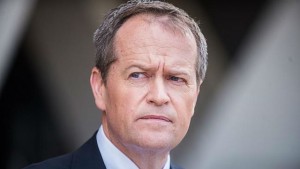Home » Commentary » Opinion » Shorten’s weak stand on religious freedom
· Ideas@TheCentre
 Last week Labor leader Bill Shorten announced his party will not join the Greens in supporting the abolition of religious exemptions to anti-discrimination laws.
Last week Labor leader Bill Shorten announced his party will not join the Greens in supporting the abolition of religious exemptions to anti-discrimination laws.
“We haven’t seen the case made to make change,” he told a press conference. “At this point in time, let me be really clear about that.”
This less-than-resounding statement was followed by a more emphatic addendum on the superfluity of a gay marriage plebiscite.
“But also let’s be straight up here. It is a massive waste of money, $160 million being spent on a plebiscite on marriage equality. Why should some people’s relationships have to undergo the gauntlet of public opinion and taxpayer-funded hate campaigns?”
Casually referring to “hate campaigns” is not very reassuring in this context, considering that the very anti-discrimination laws in question are those under which the Catholic Archbishop of Hobart was subjected to a formal complaint seeking to ban a temperately worded booklet laying out the church’s teaching on marriage.
Even less reassuring is that the Labor party’s national platform says that anti-discrimination laws would be reviewed under a Labor government. No doubt the Greens would continue to push hard during such a review for the elimination of religious exemptions.
Shorten’s half-hearted semi-endorsement does nothing to quell the uncertainty that does so much to fuel the bitterness of the marriage debate. Those on both sides who are weary of the culture wars should work toward a stable, sustainable truce that protects minorities of all kinds, not prolong uncertainty by foreshadowing future U-turns.
Exemptions for religious groups protect good-faith adherents of traditional views like Archbishop Porteous. Religious freedom is a fundamental Australian value that deserves our politicians’ full-throated endorsement — or at least something stronger than “we haven’t seen the case made … at this point in time.”
Shorten’s weak stand on religious freedom